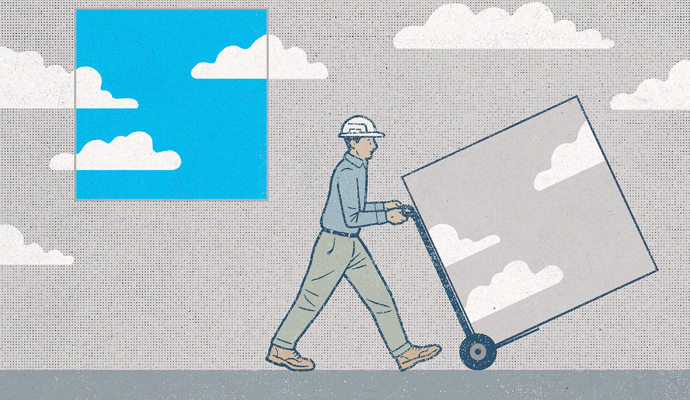Manufacturing Goes Carbon Negative

In 1996, the carpet tiles produced by Interface Inc. — the world’s largest modular carpet manufacturer — had an estimated carbon footprint of 37 pounds of CO2 per square yard. That’s equivalent to the amount of carbon dioxide released by burning a little less than two gallons of gasoline. Today, Interface has developed a carpet tile prototype, called Proof Positive, that can be produced while removing 3.7 pounds of CO2 from the atmosphere with each square yard produced. And because Interface utilizes a closed-loop recycling program, through which it works with regional recyclers to collect old carpets and reprocess them into new ones, the carbon it removes could remain out of the atmosphere for generations.
The Proof Positive carpet tile is not yet ready for the market. But as Erin Meezan, Interface’s chief sustainability officer, points out, the company has been selling the backing material developed for the tile in Europe since the fall of 2017. CircuitBac Green carpet backing is made from 97 percent nonvirgin petrochemical content (recycled limestone filler, as well as bioplastics and natural oils), and only 3 percent virgin petrochemical content. The total recycled and bio-based content for a finished carpet can be as high as 87 percent, with a carbon footprint as low as 4.2 pounds per square yard — or less than half that of its predecessor.
Read the original article here
The Dangerous Necessity of Relying on Bots

For businesses, scale isn’t everything. It’s the only thing.
Scale confers massive advantages. When you’re manufacturing physical goods, being able to move more materials through an assembly line reduces the unit cost. When you’re serving customers at a burger chain, having 20,000 outlets confers a huge cost advantage over a competitor with 200 units — you reach lots more people and make far more effective use of supply chains, advertising, and other investments. In a highly competitive industry with razor-thin margins, scale is what enables you to grow profits. And for an online or digitized business for which the cost of adding or serving a new customer is close to zero, scale is a necessity.
From an economic perspective, everybody benefits from scale, which leads to greater efficiency, convenience, and choice for consumers. Today, you can summon virtually any consumer good, watch any movie, trade any stock from the comfort and privacy of your own home, cheaply and at the click of a button.
But there are some indications that scale has its limits and poses significant challenges — to the people running those businesses, and to society at large.
Read the original article here

